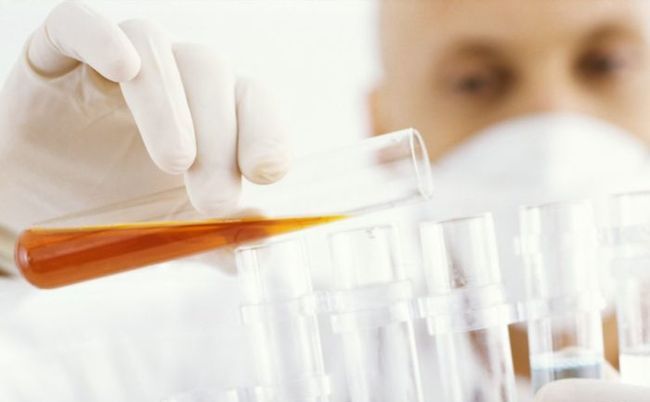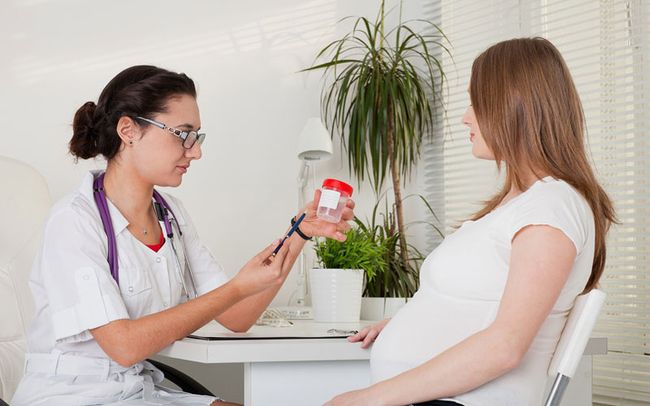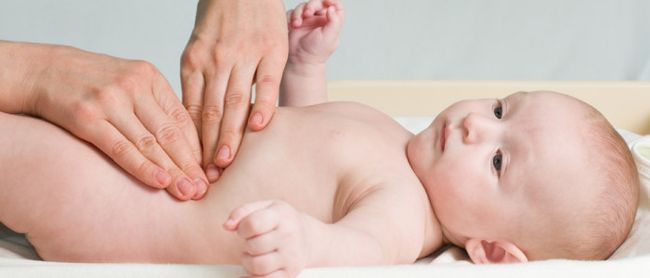Gram-negative rod-shaped bacterium Escherichia coli is normal in a healthy intestinal microflora and human stomach, helping to process food. Rate increase Escherichia coli in urine indicates the development of pathological processes in the body, which can cause diseases of the genitourinary system, gastrointestinal tract and other organs and systems.

What does indicator Escherichia coli in urine
Normally, in human urine are not present pathogens, It allowed only the presence of single species of bacteria. When, if the number of bacteria in urine is greater than the norm, this suggests pathology occurs, called bacteriuria.
Baktereuriyu can be detected only in the analysis of urine for E. coli (so also known as Escherichia coli).
In order to determine the dangers of E. coli using the following scale indicators:
- Indicator Escherichia coli less 103 - is the norm.
- figure is 103 - perhaps the development of infection, followed by the emergence of diseases of the urogenital system (urethritis, cystitis and others.).
- figure is 104 - infection of the urinary tract, the development of pyelonephritis.
- Index is equal to or more than 105 - the development of bacteriuria.
In a healthy person with a normal immune system Escherichia coli displayed with urine. But under certain conditions,, favorable for breeding Escherichia coli, coli is delayed in the urine, forming pathogens. At this state of the human body reacts to the release into the blood leukocytes, therefore increasing the white blood cells may indicate the development of the pathological process.
Important! Assay Escherichia coli necessarily corresponds with the general analysis of urine, to diagnosis was more accurate, and it was possible to assign adequate treatment.
Most often in the urine Escherichia coli is found by accident - at delivery of analyzes. But there are a number of symptoms, which may indicate the presence of Escherichia coli in urine:
- Burning, pain and itching in the genital organs, that may accompany the act of urination.
- Frequent urination (most - false).
- Deterioration of general condition: fatiguability, weakness, disability reduction, slight fever, et al.
- The women - the menstrual cycle, painful and heavy periods, pain during intercourse.
- In pregnant women - a violation of urination, severe morning sickness.
- The men - painful ejaculation, erectile Dysfunction, reduction in duration of sexual intercourse.
All these symptoms may indicate the development of pathological processes in the body, coli induced Escherichia coli.

Escherichia coli in the urine of adult
The bacterium Escherichia coli is the first among the causes of infectious and inflammatory pathology in the urogenital system. This is due to the close location of the intestine to the genitals and urinary organs.
The spread of the bacterium Escherichia coli by the following factors:
- Immunosuppression due to supercooling or diseases.
- Failure to observe personal hygiene: rare visit to the soul, use of common towels, irregular linen.
- Injury urinary tract and rectum.
- chronic diseases (eg, diabetes);
- unprotected sex (more often - anal penetration).
note! A common cause of infection Escherichia coli It becomes conducting operations on the genitals, in particular - abortion.
The women from the spread of Escherichia coli following diseases develop most often:
- Cystitis (inflammation of the bladder);
- pyelonephritis (loss of renal tubules);
- Bartolinit (inflammation of the vagina Bartholin zhelekzy);
- salpingo-oophoritis (appendagitis);
- vulvitis (inflammation of the external genitalia);
- endometritis (inflammation of the mucous membrane of the uterus).

Men Escherichia coli found in the urine less frequently, than women, and may indicate the presence of the following diseases:
- prostatitis (inflammation of the prostate gland);
- vesicles (gonecystitis);
- Orhi (inflammation of the epididymis to the testicle);
- urethra (urethritis).
When human lesions bacterium Escherichia coli pain can arise in the intestine and stomach, chair disorder, discomfort during urination, frequent (false) uriesthesia.
In the propagation of E. coli infection begins to hit the upper sections of the genitourinary system and kidneys. Against this background, the person has aches throughout the body, may experience nausea and vomiting, the temperature rises.
Escherichia coli in the urine of pregnant women
Detection of Escherichia coli in pregnancy is associated with changes in hormonal levels, the penetration of bacteria into the bladder, and the stagnation of urine. The smear, which is taken from the cervix and vagina, Escherichia coli to detect crop hard, so you should take the seed to confirm bacteriuria.
On the bladder during pregnancy the fetus takes place pressure, that is the reason for the stagnation of urine, resulting in E. coli is delayed in the ducts and start to actively proliferate. The longer the urine stays in the bladder, the more active is the process of bacterial growth, which contributes to a lot of hormonal disorders.

The bacterium can cause inflammation of the lining of the pregnant, occurrence of vaginal dysbacteriosis, inflammation of the kidneys and ureters. The danger of such conditions not only in a negative impact on the fetus, but also in pharmaceuticals, required to eliminate disease.
Important! During childbearing bacterium Escherichia coli dangerous not only for the mother, but also for the future baby, tk. the infection can be passed on to him during childbirth.
To protect themselves from infection, required to comply with the intimate hygiene, often to bathe and change underwear, carry mocheispusanie as urgency, not allowing the bacteria to linger in the ducts.
In pregnant women, bacteriuria is often asymptomatic. because, from the third month, expectant mothers need to regularly take the bacterial inoculation of Escherichia coli.
With timely detection of bacteria and conduct adequate treatment in pregnant the risk of abnormalities detected in a newborn is minimal.
Escherichia coli in the urine of the child
Escherichia coli in a child is most often seen asymptomatically, therefore unable to detect the problem at once. Children become restless, kapriznыmi, sluggish, but the spread of the bacteria starts to develop urethritis and cystitis, which is manifested by pain when urinating, and abdominal advent rezey.
If time does not cure the pathology, the infection begins to spread higher and affects the kidneys, whereby it may be glomerulonephritis, pyelonephritis.
More often than E. coli enters the urogenital system of the child along with the feces (so as Escherichia coli found in the stool is normal in humans), remaining on the genitals, due to poor hygiene.
In infants Escherichia coli appears mainly during passage through the birth canal and is a very common obstetric complications, special, if the birth were associated with injuries.

In infants spread of Escherichia may lead to the development of chronic inflammatory processes in the kidneys and urinary system. Therefore, it is important to begin treatment immediately after the detection of crop on Escherichia coli.
Treatment эsherihiya cars
If the presence of Escherichia coli in urine did not cause any inflammatory and pathological processes in the body, the special treatment is not required.
Suffice it to adhere to proper nutrition: include in the diet food gentle (without salt, acute, canned, fried foods), drink plenty of fluids, be consumed in large quantities dairy products. During treatment should adhere to personal hygiene, eliminate sexual acts (especially - anal sex).
During treatment, make good use of herbal teas and herbal teas for acid reflux urinary organs - it does not grow bacteria colonies, destroying their usual habitat.
Important! All procedures and therapeutic measures should be undertaken only after consultation with a urologist.
treatment regimen, its duration and the selection of drug is prescribed only after all tests to identify the species Escherichia coli, taking into account the characteristics of each patient individually.
Since Escherichia coli is a bacterium, in the treatment of pathologies requires antibiotics. Formulations are assigned based on the culture results and determine the sensitivity of microflora to the different antibacterials.

In the application of antibiotics to prevent the recurrence of the disease and dysbiosis probiotics appointed, eubiotics, prebiotics, herbal extracts and tinctures, which normalize microflora.
short course of therapy given to pregnant women and children, including antibiotics, and diuretics uroseptikov.
The decision on the appointment of therapy is accepted as a doctor in each case individually, so self-medicate when detecting Escherichia coli is strictly prohibited.
In identifying Escherichia coli in urine should conduct additional studies of the urogenital system and the pelvic organs in order to avoid serious abnormalities of these organs.
Avoid occurrence of Escherichia coli in the urine is quite easy - just follow the rules of personal intimate hygiene, not to engage in unprotected sex, only use their own hygiene.












